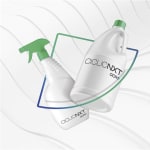
GCR has introduced Ciclicnxt, a next-generation portfolio of certified post-consumer recycled polyolefins positioned for industrial-scale applications. The materials are designed for brand owners and converters seeking recycled content with mechanical, thermal and processing performance comparable to virgin polymers, while maintaining supply stability and documentation. Production is based on a European mechanical recycling plant with a reported €100 million investment and an annual capacity of 100,000 metric tons of post-consumer input, comprising 80,000 tons of rigid and 20,000 tons of flexible polyolefins. The site integrates sorting, washing and compounding, low-energy processing and a closed-loop water purification system. GCR highlights a diversified sourcing base intended to stabilize feedstock quality and continuity, and an Innovation Hub that develops and validates every Ciclicnxt grade through pilot-line trials, analytical quality assurance and application co-development. The company states that gas chromatography and related analytical tools are used to detect VOCs, NVOCs and substances of interest in recycled streams, supporting tighter specifications. Ciclicnxt covers non-food contact uses such as rigid and flexible packaging, personal care, household products, building materials and consumer goods. The range is supported by multiple certifications addressing quality management, environmental management, product carbon footprint, chain-of-custody and process conformity. Food-contact authorization is not yet granted; GCR reports ongoing submissions to EFSA, including work within consortia, and plans an FDA filing by year end. The company is collaborating with plastic processors to increase recycled content in targeted applications.
Industrial capacity and process control
The Ciclicnxt grades are produced at GCR's mechanical recycling and compounding facility that processes 100,000 metric tons per year of post-consumer materials. The operation includes rigid and flexible polyolefin streams, integrated washing and compounding, and water reuse via a closed-loop purification system. According to the company, a diversified supply strategy is used to secure feedstock and reduce variability, supporting long-term supply programs for converters integrating recycled content at scale.
"In today’s uncertain market, where recyclers face both cost and sustainability pressures, GCR has made, and continues to make, strategic investments in high-quality, sustainable recycling," said Sandra Fernandez Freixa, Marketing and Sustainability Director at GCR.
"With the launch of Ciclicnxt, we’re reinforcing our commitment to delivering reliable, high-performance PCR materials that help our customers meet regulations and support a more sustainable planet."
Quality, analysis and certifications
Each Ciclicnxt grade is developed and validated through GCR’s Innovation Hub, which the company says brings together more than 50 specialists and a framework for industrial-scale pilot testing, advanced QA and analytical testing, material innovation with customers and real-world performance validation. GCR reports the use of gas chromatography to monitor VOCs, NVOCs and other substances of interest, aiming to increase material purity and consistency and to support tight tolerances in demanding applications.
Scope of technical development
- Industrial-scale pilot line testing
- Advanced QA and analytical testing
- Material innovation and application co-development
- Real-world performance validation
According to GCR, Ciclicnxt is supported by the following certifications and schemes:
- ISO 9001:2015, TÜV-certified quality management system
- ISO 14001:2015, TÜV-certified environmental management system
- PAS 2050:2011, TÜV-certified product carbon footprint
- Product carbon footprint, regular surveillance, TÜV-certified
- ISCC, International Sustainability and Carbon Certification
- RecyClass recycling process certification in accordance with EN 15343
- OCS Europe, Operation Clean Sweep, certified by AENOR

Applications and regulatory pathway
Ciclicnxt is aimed at non-food contact uses across multiple market segments:
- Rigid and flexible packaging
- Personal care
- Household products
- Building materials
- Consumer goods
GCR states it is pursuing food-grade approvals. Dossiers are being prepared for EFSA, including participation in several consortia, and the company expects to submit its FDA application by the end of the year. GCR reports established alliances with plastic processors to align performance requirements, support qualification and scale the use of post-consumer recycled polyolefins in selected applications.



